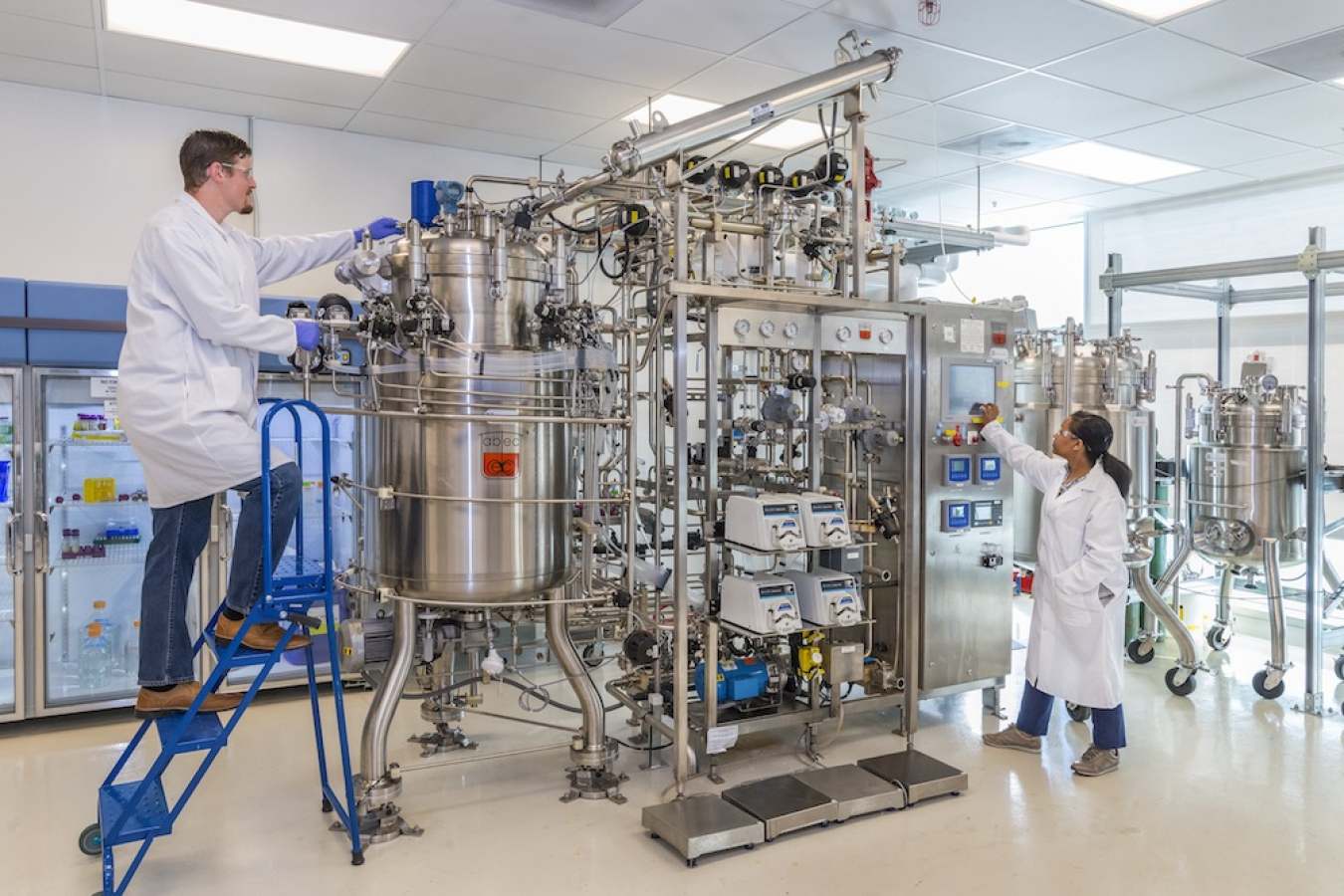
Advanced Biofuels Process Demonstration Unit at Lawrence Berkeley National Laboratory. Photo credit: Roy Kaltschmidt/Berkeley Lab
Microvi Biotechnologies, a leading innovator of biocatalytic processes, together with the Advanced Biofuels Process Demonstration Unit (ABPDU) at Lawrence Berkeley National Laboratory (Berkeley Lab), has demonstrated a major breakthrough to biological ethanol production.
Compared with a conventional yeast ethanol production, a preliminary evaluation showed that Microvi’s biocatalytic technology nearly doubled bio-ethanol productivity, increased conversion yields, and minimized microbial contaminants. The process showed increased productivity and efficiency, therefore increasing potential sustainability of biofuel production. Todd Pray, ABPDU Program Head, said the ABPDU looks forward to collaborating with Microvi in further optimization and scale-up work, including validation using lignocellulosic biomass feedstocks.
“These results validate the revolutionary performance achievable with Microvi biocatalytic processes,” said Fatemeh Shirazi, CEO of Microvi. “This validation study, like other ongoing third-party validations of various Microvi technologies, show the promise of Microvi’s biomimetic approach—design inspired by nature—to enhance bioconversion processes.” Read more from the Berkeley Lab press release.
The ABPDU at Berkeley Lab was built and is partially operated with funds from the Bioenergy Technology Office (BETO). This breakthrough is one of the ways BETO, together with our national laboratories, is helping to develop sustainable, cost-competitive biofuels that can displace foreign imports, decrease greenhouse gas emissions, and build rural economies.
